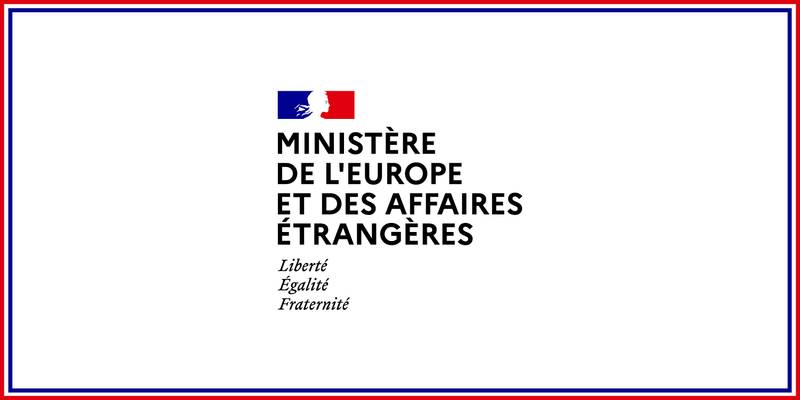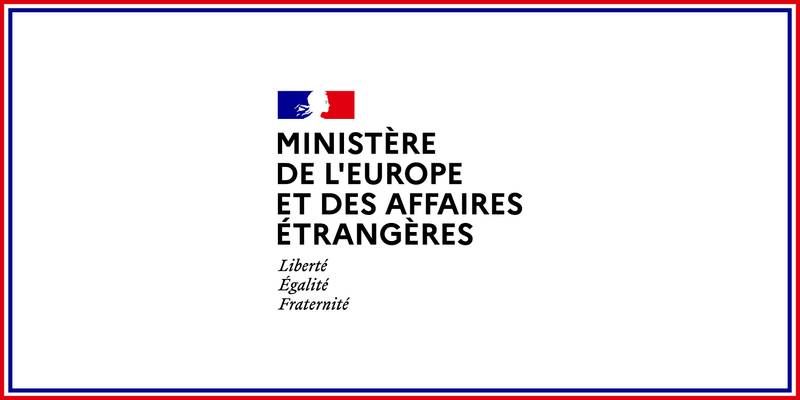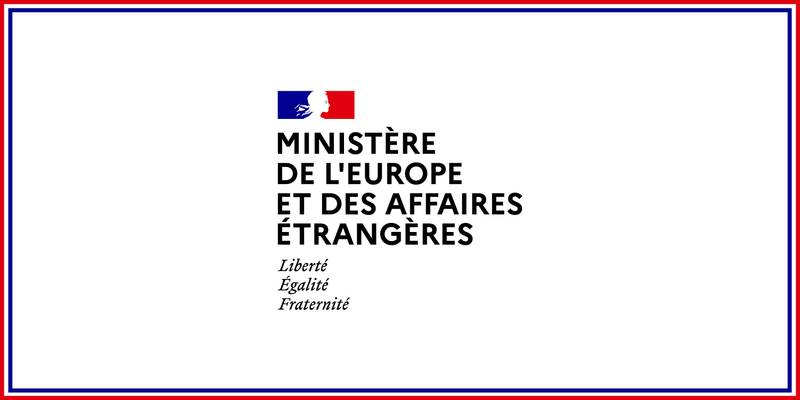Interview given as part of the visit to Latvia by Catherine Colonna, Minister for Europe and Foreign Affairs.
1. After Russia’s large-scale attack in Ukraine, the leaders of several countries, including France, adopted a position which gave rise to incomprehension and objections not just in Ukraine but in the Baltic countries too. “We must not humiliate Russia so that the day when the fighting stops we can build an exit ramp through diplomatic means”, said Emmanuel Macron in July 2022. What is France’s current position on this and is the need to give Putin the opportunity to “save face” still under consideration?
On 24 February 2022, Russia chose to launch a war of aggression against Ukraine, the only reason for which is Russia’s desire to revive a fantasized imperial past. Since day one of the aggression, France has stood alongside Ukraine to help it win, through military, humanitarian and economic support, and to establish the conditions for rebuilding the country’s infrastructure. If, when the time comes, peace negotiations are required to find a way out of the conflict, the Ukrainians alone will decide on the arrangements for these negotiations. We’ll stand at their side, with our allies and our European partners, for as long as necessary. This is why we called for the European Union to be involved in the security commitments made for Ukraine. As I reiterate whenever I’m given the opportunity – I did so only last week, during my speech at the United Nations General Assembly in New York –, the security of us all is at stake and we can’t allow a country to win when it has attacked another.
2. What is France’s position on Ukraine joining NATO?
At the latest NATO summit in Vilnius in July, it was decided that Ukraine would become a member of the Alliance as soon as conditions allow. Ukraine today is closer to NATO than ever; incidentally, this is one of Vladimir Putin’s chief failures. Without waiting for it to join, President Macron and his Ukrainian counterpart began discussions on a bilateral arrangement, to establish a long-term contract for France’s military, humanitarian and economic aid to Ukraine.
3. Italian Prime Minister Giorgia Meloni has promised to take “extraordinary measures” to resolve the problem of migrants arriving, including by calling again for a maritime blockade to be imposed on North African countries. The debate about migration is also in the news in France at the moment; amendments to legislation are also being considered. Could you describe the policy your country is adopting on the issue? Is the maritime blockade a solution you could support?
Italy is exposed through its geography, being near the coast of North Africa. It’s having to confront a very difficult situation given the influx of migrants. The answer must lie in cooperation between Europeans and their solidarity with Italy, as President Macron reiterated on Sunday. We must also work with the migrants’ countries of origin and transit. Our priority is to prevent departures, including by combating people smugglers, but also by dealing with the underlying causes of migration which drive these people into exile in search of improved living conditions. We must do what’s necessary to provide those countries with the help they need: in this respect, we welcome the financial aid the European Commission recently announced for Tunisia. But our efforts must also focus on strengthening our European asylum and returns policy, making it able to withstand crises. In this respect, as Europeans we’ve got to adopt the pact on migration and asylum by the end of this year. The pact, negotiated at the level of home affairs ministers, provides, among other things, for asylum applicants to be processed at the borders in order to distinguish more swiftly, sooner, those migrants being persecuted in their country of origin – who, as such, may benefit from asylum – from those who, on the contrary, aren’t eligible and must be escorted back to their country in a dignified manner. I was able to have a meeting in Paris on Monday with my Italian counterpart, Antonio Tajani, and noted that we share the same goal. Let me repeat that we won’t leave the Italians on their own, we’ll stand in solidarity to confront this challenge.
4. In what way was the feeling in society influenced by the recent riots in French towns and cities?
The riots were a shock for everyone. The Government was able to respond effectively to end the violence. Having said that, we must learn lessons from it. President Macron asked the Prime Minister to make proposals for addressing the many challenges the riots highlighted. As the Prime Minister pointed out, our response must be comprehensive. There are issues of security and public order, of course, but more broadly of respect for authority, of integration, of education, of combating job insecurity and of social diversity, and Mme Borne will set out tailored measures in the first two weeks of October.
5. French foreign policy has always been especially focused on Africa. At the same time, growing anti-French feeling is increasingly present in the media there, often appearing in various coup leaders’ rhetoric. What comments do you have about these developments, and are there any special measures your country intends to take in this regard?
We mustn’t conflate Africa with certain Sahel countries. The populist weaponizing of anti-French discourse, which is actively amplified by Russia, mustn’t conceal the quality and closeness of our relations with the vast majority of the countries. On a continent which is rapidly emerging, we have assets to put to good use: the closeness of our peoples, the expertise of our businesses, the excellence of our universities, the creativity of our cultural life, the dynamism of our young people and diasporas, and Francophonie. We mustn’t reduce Africa to a land of competition or profit: we must regard the African countries as genuine partners with whom we have shared interests and responsibilities. We must continue to build a balanced, reciprocal and responsible relationship. The African countries are also essential partners for tackling the many shared challenges. That’s also why we welcome the African Union’s inclusion in the G20, and support a greater role for Africa on the United Nations Security Council.
6. This is your first visit to Latvia as Foreign Minister. What’s the most important issue you’d like to emphasize during this visit?
That’s right, but I came on an official visit when I held the post of Minister Delegate for European Affairs a few years ago now! I’m honoured to be here to talk to the Latvian authorities about European issues, global challenges and the prospects for strengthening the bilateral relationship. Continuing the support for Ukraine will of course be at the heart of the discussions. We Europeans must also keep working together on reducing our dependencies and on a sovereignty agenda, as defined last year at the Versailles summit under the French presidency of the Council of the EU. That’s the key to lasting security for Europe, and to its ability to take action and carry weight. From defence to trade and energy, this European strategic autonomy agenda must be central to Europe’s future agenda. Let’s work for a more clear-sighted, more sovereign, more integrated and more united Europe.
Useful links
Originally published at https://www.diplomatie.gouv.fr/en/country-files/latvia/events/article/interview-given-by-catherine-colonna-to-the-latvian-daily-newspaper-latvijas




